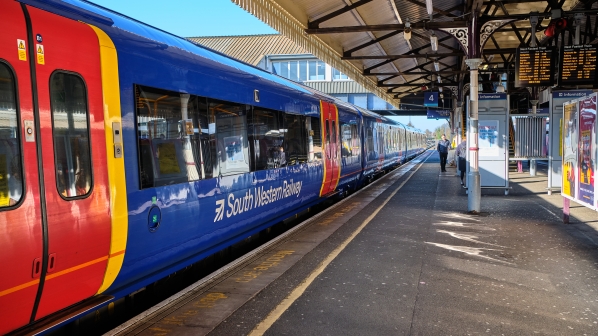Avanti West Coast, a 70:30 joint venture with Trenitalia UK, and SWR, a 70:30 joint venture of FirstGroup and MTR, are currently operating under Emergency Recovery Measures Agreements (ERMA) introduced by the DfT in September. The agreements effectively ended the franchise system with the government paying a set fee to the franchise operators to continue to operate services at no financial risk while demand remains suppressed.
The DfT says the measures are the first stage in creating a concession-based system for operating Britain’s railway network and are providing continuity for passengers and the industry during the coronavirus pandemic. The ERMAs are estimated to be costing the taxpayer £900m a month.
The SWR ERMA will run until the end of March 2021, while the ERMA for Avanti is in place to the end of March 2022. Both agreements can be extended by the DfT by six months.
Under the ERMAs, the operators and DfT are required to agree whether any payment is required to terminate the pre-existing franchise agreements, and if so, by how much, based on a pre-coronavirus trajectory financial model.
The DfT and First Group have agreed that no termination sum is required for Avanti, which commenced operation in December 2019 and was performing well prior to the pandemic.
The DfT and First Group have also agreed for First Group to pay a £33.2m termination sum for SWR, which represents the group’s share of parent company support and additional funding commitments under the franchise agreement, less amounts already paid into the operating company. The fee will be paid at the end of the ERMA term.
The pre-existing franchise agreements for SWR and Avanti will terminate at the end of the ERMA term.
Reduces risk
First Group says the agreement of the termination sums significantly reduces the overall financial risk within the First Rail franchise portfolio, which also includes the TransPennine Express (TPE) and Great Western Railway (GWR) franchises.
Following the agreement of the termination sums, First Group is negotiating new directly-awarded management contracts for Avanti and SWR with the DfT, which will come into effect at the end of the ERMAs, under which each incumbent train operator will deliver passenger rail services.
The DfT have indicated that these new National Rail Contracts would last to April 1 2023 for SWR, and to April 1 2026 for Avanti, each with an optional two-year extension.
First Group says the process to agree a franchise termination sum for TPE, which is also operating under an ERMA, has been extended to the end of January 2021 by the DfT.
In September, the DfT extended the existing Emergency Measures Agreement (EMA) for GWR to June 2021.
In its 2019-20 annual results to March 2020 published on July 8, First Group acknowledged a “material uncertainty exists” about its ability to continue trading, as plummeting passenger numbers and an inability to sell its American subsidiaries had resulted in a pre-tax loss of £299.6m.
Further evolution
“We welcome this agreement, which marks a further evolution of the contractual framework for our SWR and Avanti train operating companies, both in the context of providing resilient services throughout the coronavirus pandemic and also a more sustainable long-term approach,” says FirstGroup chief executive, Mr Matthew Gregory.
“These new directly awarded management contracts will focus on passengers and operational performance, with a more appropriate balance of risk and reward. We look forward to working constructively with the DfT to make this a reality, and to use our expertise and understanding of the needs of our customers to deliver improvements that we know passengers want.
“We have acted flexibly to ensure continuity of service while implementing social distancing, as well as enhanced cleaning protocols and innovative technology to improve the customer experience. Passengers and employees alike can be confident that our trains are safe.
“We are now operating around 90% of the rail services we were prior to the pandemic. We will continue to bring all our experience to bear alongside government and industry partners to deliver the next phase of recovery of the rail network.”

